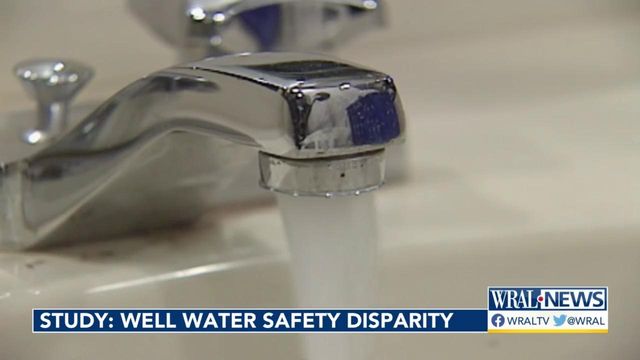Low-income and minority communities more likely to be exposed to contaminated well water, study finds
One in four households in North Carolina rely on private wells for drinking water and most haven't been tested for contaminants.
However, a recent University of North Carolina at Chapel Hill study found dozens of dangerous contaminants, including toxic metals such as lead and hexavalent chromium, in the majority of wells tested in Robeson, Northampton, Chatham and New Hanover counties.
The researchers found that more than 67% of wells tested in the study had contaminant levels that exceeded a federal or state drinking water standard.
"We found there were equal levels of contamination across the sample, but there weren’t equal levels of awareness among the participants," said Andrew George, with UNC's Institute for the Environment. "Even though there were lots of contaminated wells, not everyone is aware of the problem and if you're not aware of the problem, you can't do anything to fix it."
Researchers found that white, affluent households had 10 times greater odds of testing their wells and four times greater odds of treating their water than low-income, Black, Indigenous and other People of Color (BIPOC) households.
Without testing and treatment, these marginalized communities may be shouldering a disproportionate burden of exposure to toxic water.
Drinking contaminated water over an extended period of time can lead to health issues, including cancer.
Private wells are not covered in the Safe Drinking Water Act, so the cost of testing and treatment of contaminants falls on the homeowner.
"We’ve been recommending ways to incentivize more testing, provide free or low-cost testing, and provide support to those homeowners without contaminated wells that might need help with the treatment side of the equation," George said.
Bailey Allison, an equity communications manager with the NC Department of Health and Human Services says private well water can be tested via the North Carolina State Laboratory through your local health department or a state-certified commercial lab. However, specific procedures, fees and ordinances may vary from county to county.
Testing is only half of the equation and costs for full-home water treatment systems for some contaminants can cost thousands of dollars for installation and maintenance.
Researchers say they are working with policymakers to develop programs to make more water treatment resources available to marginalized households.
WRAL Documentary: Forever Chemicals: North Carolina's Toxic Tap Water
The latest WRAL Doc, "Forever Chemicals," shows how this contamination happened and highlights demands from families who want to know if drinking toxic water for years has led to health problems including cancer and birth defects.












